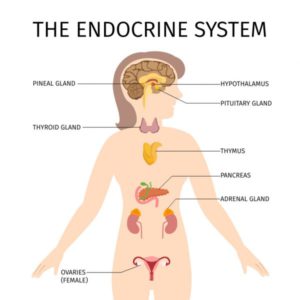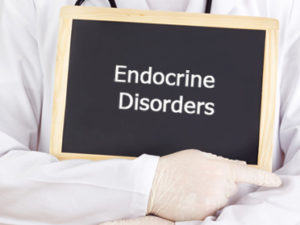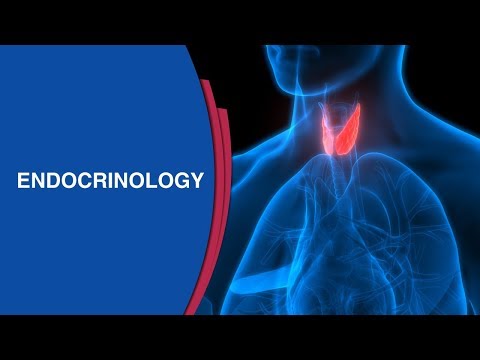Contents
What Is The Endocrine System?
The endocrine system is made up of glands that make hormones. Hormones are the body’s chemical messengers. The endocrine system is a progression of glands that secrete and produce hormones. The body utilizes it for a wide scope of functions. These control various substantial body functions, including:
- Respiration
- Metabolism
- Reproduction
- Sensory perception
- Movement
- Sexual development
- Growth
Hormones are created by endocrine system glands and sent into the bloodstream to the different tissues in the body. They send signals to those tissues to tell them what they should do. At the point when the glands don’t produce the perfect measure of hormones, then disease foster that can influence numerous parts of life.
These signals tell your body what to try to do and when to try to do it. Hormones deliver their messages by locking into the cells they’re targeting so that they can relay the message. Your endocrine system continuously monitors the amounts of hormones in your blood.

Endocrine System Glands
A gland is a part of a structure that creates and produces substances that play out a particular function in the body. There are two sorts of the gland. Endocrine glands are ductless glands. They produce the substances that make (hormones) into the bloodstream. These glands are the structural part of the endocrine system.
There is another kind of gland called an exocrine gland (for example sweat glands, lymph nodes). These are not viewed as a feature of the endocrine system. It is because they don’t produce hormones. Thus, they release their product through a duct.
Endocrine system glands, like the pancreas and thyroid gland, utilize the bloodstream to screen the body’s internal environment. It is to communicate with one another through substances called hormones. They are produced in the bloodstream. The adrenal glands are small structures appended to the top point of each kidney. The human body has two adrenal glands that produce chemicals called hormones into the bloodstream. These hormones also affect numerous parts of the human body.
Endocrine Glands and Hormones
Hormones are the molecules that are created by endocrine glands, together with the neural structure, endocrine gland, adrenal glands, gonads, (i.e., testes and ovaries), ductless gland, endocrine glands, and exocrine gland.
The term “endocrine” implies that in response to specific stimuli, the service of these glands is unit free into the blood. The hormones are then carried via the blood to their target cells. Some hormones have solely a couple of specific target cells, whereas different hormones have an effect on varied cells throughout the body.
The target cells for every endocrine area unit are characterized by the presence of docking molecules (i.e., receptors) for the endocrine either on the cell surface or within the cell. The interaction between the endocrine and its receptor triggers a cascade of organic chemistry reactions within the target cell that eventually modify the cell’s performance or activity.
Functions of Endocrine System
The fundamental function of endocrine system glands is to secrete hormones into the bloodstream. Hormones are also chemical substances that affect the part of the body that relates to activity. Hormones are the messengers, controlling and planning activities all through the body.
- After getting to an objective site, hormone ties to a receptor. It is similar to a key that fits in a way into a lock. When the hormones are secure in its receptor, it sends a message. It causes the objective site to make a particular move. Hormone receptors might be inside the core or on the surface of the cell.
- Eventually, hormones control the function of whole glands. It is affecting different cycles as development and improvement, proliferation, and sexual attributes. Hormones additionally impact how the body uses them. Also stores energy and controls the volume of fluid. Else, controls some degrees of salts and sugar (glucose) in the blood. Limited quantities of hormones can trigger extremely huge reactions in the body.
- Even though hormones flow all through the body, each kind of hormone impacts just certain endocrine system glands and tissues. A few hormones affect just a couple of glands. Thus, others have an impact all through the body. For instance, thyroid-stimulating hormone, created in the pituitary gland, affects just the thyroid gland.
Conversely, thyroid hormone, created in the thyroid gland, affects cells all through the body. It is engaged with significant functions as regulating the development of cells. Also, it involves controlling the pulse and affecting the speed at which calories are burned.
Insulin, secreted by the islet cells of the pancreas, affects the processing of glucose, protein, and fat all through the body. Most hormones are gotten from proteins. Others are steroids, which are greasy substances gotten from cholesterol.
Health Issue Related To Endocrine System
Various elements are accepted to cause endocrine system issues. Types and reasons for endocrine problems include:
- Acromegaly, an overproduction of growth hormone, and prolactinoma, an overproduction of prolactin hormone, results in damage to the pituitary gland.
- Addison’s disease and Cushing’s condition, disease-related with changes in levels of hormones produced by the adrenal glands.
- Diabetes mellitus, which emerges when the pancreas doesn’t produce adequate insulin or when the body can’t react to the insulin that is present.
- Environmental or nutritional variables, like the absence of iodine in hypothyroidism, can affect hormone production.
- Genetic variables, which may play a part in endocrine system problems, particularly with diabetes and different issues, like autoimmune thyroiditis, or Hashimoto’s thyroiditis.
- Hyperthyroidism (overactive thyroid), hypothyroidism (underactive thyroid), Graves’ disease (a sort of hyperthyroidism resulting in excessive thyroid hormone production), and Hashimoto’s thyroiditis (an autoimmune disease resulting in hypothyroidism), all subsequent from issues with the thyroid gland
- Tumours, since the fundamental reason for the endocrine problem, can be linked to the growth or tumour of the gland
However, in some cases, the specific reason for a particular endocrine system issue isn’t known. Often, hormones interact with one another. So side effects of a particular endocrine problem might be vague. It is essential to look for medical evaluation. If you trust you may have an endocrine problem, as immediate evaluation of hormone levels may help find and fix the basic reason for hormone imbalance.
Endocrine System Disorder

Endocrine disorders are diseases that relate to the endocrine glands of the body. The endocrine system produces hormones. They are chemical signals that are sent out. It is secreted through the bloodstream. Hormones assist the body with regulating processes. Such as hunger, breathing, development, fluid balance, feminization and virilization, and weight control. The endocrine system comprises a few glands. It includes the pituitary gland and hypothalamus in the brain, adrenal glands in the kidneys, and thyroid in the neck. Also, it includes the pancreas, ovaries, and testicles.
The stomach, liver, and digestive glands additionally secrete hormones related to digestion. Most regular endocrine issues are related to improper functioning. It is of the pancreas and the pituitary, thyroid, and adrenal glands. Modern treatment is successful for endocrine system disorders. The serious outcomes of endocrine dysfunction are rare. Nonetheless, untreated endocrine disorders can have widespread complications all through the body. While endocrine disorders don’t typically need hospitalization, at times they may prompt serious symptoms.
The symptoms of the endocrine disorder can go from mild to even nonexistent. It can have a serious effect of symptoms on your whole body. It is also with an overall sensation of well-being. Some specific symptoms rely upon the particular part of the endocrine system affected.
A Word From MantraCare
Do you want to get rid of diabetes? Join our online diabetes consultation program and reverse your Diabetes naturally through lifestyle changes such as a Personalized Diet plan, Exercise, dieticians, and health coaches.


